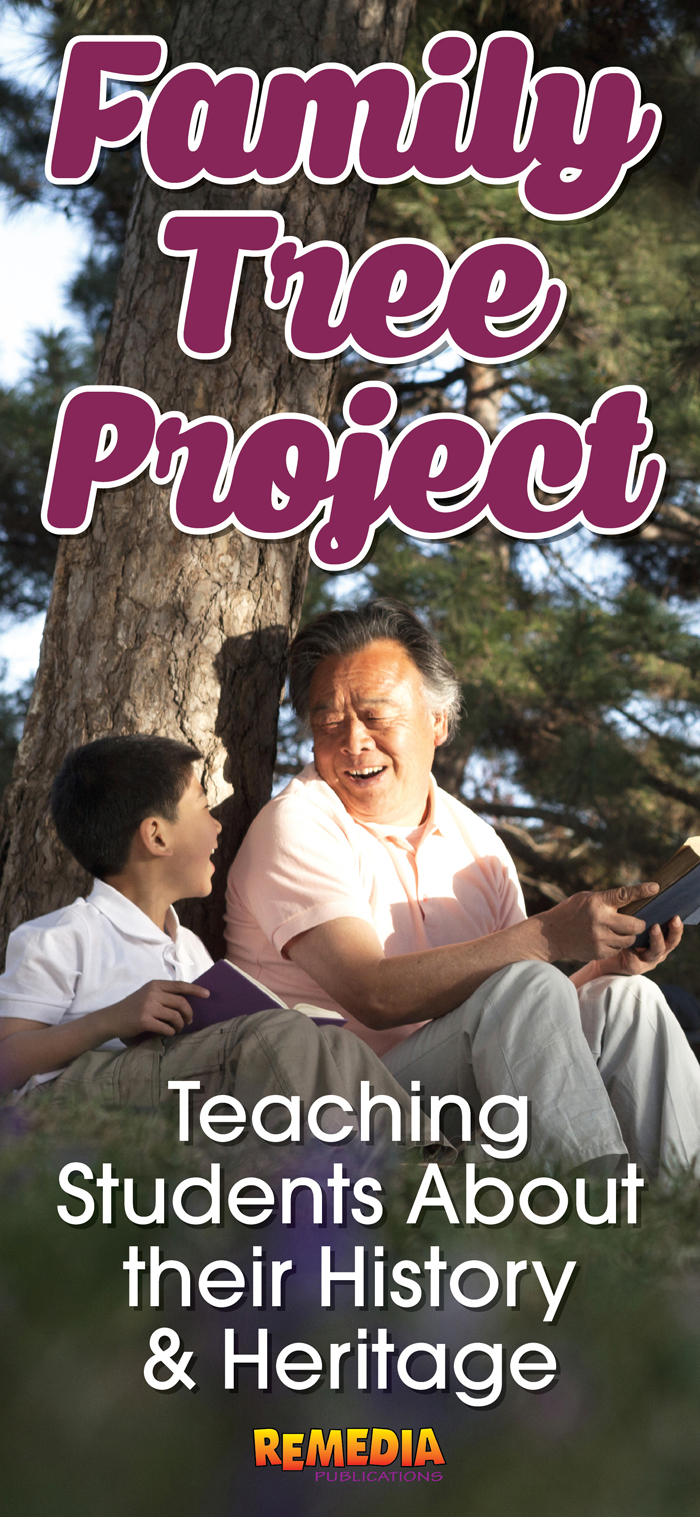As part of studying the different cultures of America, encourage students to investigate their own heritage. Where did their ancestors come from? To which ethnic groups did their ancestors belong? Set up a "Heritage" corner in your classroom. Have students bring recipes, stories, photographs, etc. that relate to their family's heritage to share with their classmates.
As you know, making learning personal, keeps students interested! Use these resources and interview questions to help students build their family tree and map their family's story. They will be working on geography, history, and research skills, all while learning about themselves.
Helpful Resources
There are a number of resources that will be helpful to you. Below are two excellent publications for you use. The first is the official Ellis Island Handbook which addresses specific ethnic groups and offers suggestions for tracing lineages, such as Native Americans, African Americans, and Jewish Americans. It includes a history and meaning of the names as well as a step-by-step process to tracing one's heritage.
Do People Grow in Family Trees?: Genealogy for Kids & Other Beginners. The official Ellis Island Handbook by Ira Wolfman
Roots for Kids, A Genealogy Guide for Young People by Susan Provost Beller
Getting Students Started
Help students get started learning and researching their roots by having them interview their parents and grandparents. Have students write a letter to distant relatives. Or they can record their interviews with family members who they live near.
Interview Questions:
- Where and when were you born?
- Where were your parents born? When?
- What do you remember about your childhood?
- What things did you and your family do?
- Do you know any stories about other members of your family that are interesting?
- What was the biggest historical event that happened when you were a child? How did it effect you?
Family Tree
Have students make a family tree. How far back can they go? You will need a large piece of paper. Follow these steps {free download}. For each person write: name, date or year born, and where.
1. Start with your name and information; put your name in the middle.
2. Then add your brothers and sisters next to your name.
3. Above you, add your parents.
4. Above each of your parents, add their parents (your grandparents).
5. Then add your great grandparents.
6. Continue adding to your family tree as you find out more about your ancestors.
Map Your Heritage
Use this hands-on geography activity to show students' their family's journey. They will use the information they learned from their interviews and family tree to help them see exactly where their family came from. Have students start on the map with their oldest ancestor on their family tree. Where was he/she born? Have students mark that location by drawing a star or placing a pin in the spot. Where was the next person born? ...and so on. A line should begin to be formed leading to where the student was born. Some students will need a map of the world, while other students will need a map United States or their specific state.
Even More
Depending on your students' grade and interest level, this activity can be stretched and expanded into many different educational activities–as you know, making learning personal, keeps students interested!
- History Report - students can draw connections between their family and historical events.
- Research Heritage - research, write, and present
- Create a Timeline - show major historical events and how they correlate to different family members
- Creative Writing - write a letter to or from an ancestor
Parts of this activity are adapted from Remedia's Native Americans Unit: Embracing and understanding cultural differences. From information about America’s regional Indian tribes, to the languages, symbols, and legends of the Native American culture, this book’s cross-curriculum activities will teach students about this country’s “First Americans.”
Activities include reading, comprehension, language arts, math, social studies, critical thinking, following directions, and listening skills.





